Gender consultant Aisha Hamad: ‘There will be no peace in Sudan without gender justice and accountability for violations…’
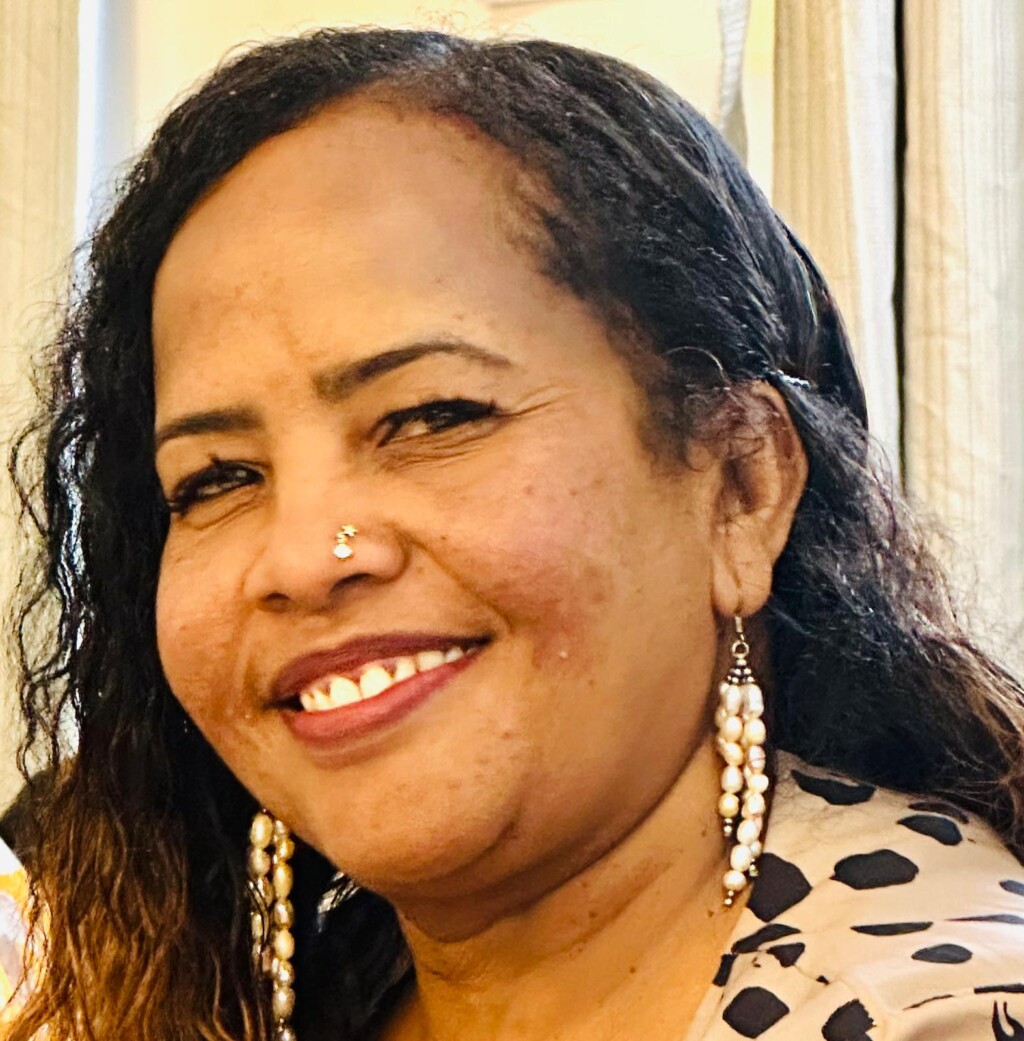
Aisha Hamad Mohamed, advisor to former Sudanese Prime Minister Abdalla Hamdok on gender issues and lead researcher in the field of peacebuilding and women’s inclusion: Image source: Radio Dabanga
The ongoing war in Sudan is being waged on women’s bodies, with rates of sexual violence increasing by 288 per cent in just one year, Aisha Hamad, advisor to former Sudanese Prime Minister Abdalla Hamdok on gender issues laments in an exclusive interview with Radio Dabanga. “Gender-based violence threatens approximately 12 million people in Sudan, she adds.
Speaking or Radio Dabanga’s programme Plain Speaking broadcast on Sunday, Hamad, who is also a senior researcher in peacebuilding and women’s inclusion, asserts that “genuine peace in Sudan requires real transitional justice that places women in decision-making positions and acknowledges their suffering”.
She emphasises that the necessary female participation in the peace process begins from the design and formulation of issues, not merely as a token representation. She stresses the need to integrate women’s issues using gender-sensitive language, with a participation rate of no less than 40 per cent.
In the same interview with Radio Dabanga, she notes that women’s presence is limited in decision-making positions within political parties and forces. She calls for holding accountable those responsible for the atrocities and violations that occurs in El Fasher and Bara, and for establishing mechanisms to ensure accountability. Effective in protecting civilians, she stresses that there is no military solution to this war, and no peace without gender justice and accountability for violations. She says that what is needed now is a broad civil front, encompassing all initiatives and groups, to demand an immediate end to the war and the establishment of peace.
A power struggle and something deeper
In her opening remarks to Radio Dabanga, Aisha Hamad, a specialist in gender, development, and peacebuilding, particularly in post-conflict and transitional settings, states that “the war in Sudan is a struggle for power and influence between two military forces, but its essence is much deeper than a mere competition for governance.” She explains that this war is also “the product of complex structural accumulations related to state mismanagement and the unequal distribution of power and wealth.” She further clarifies that the absence of a comprehensive national project that reflects the aspirations of all components of the Sudanese people was one of the main reasons for the outbreak and continuation of the war. She underscores that the historical failure of political and military elites to build a state based on citizenship, justice, and equality has contributed to exacerbating the crisis. She explains that this failure has led to deep regional and tribal divisions, with loyalties shifting from the state to groups and clans. However, she clarifies that tribal loyalties are not a root cause of the war, but rather a natural consequence of the absence of a national state that embraces all its citizens.
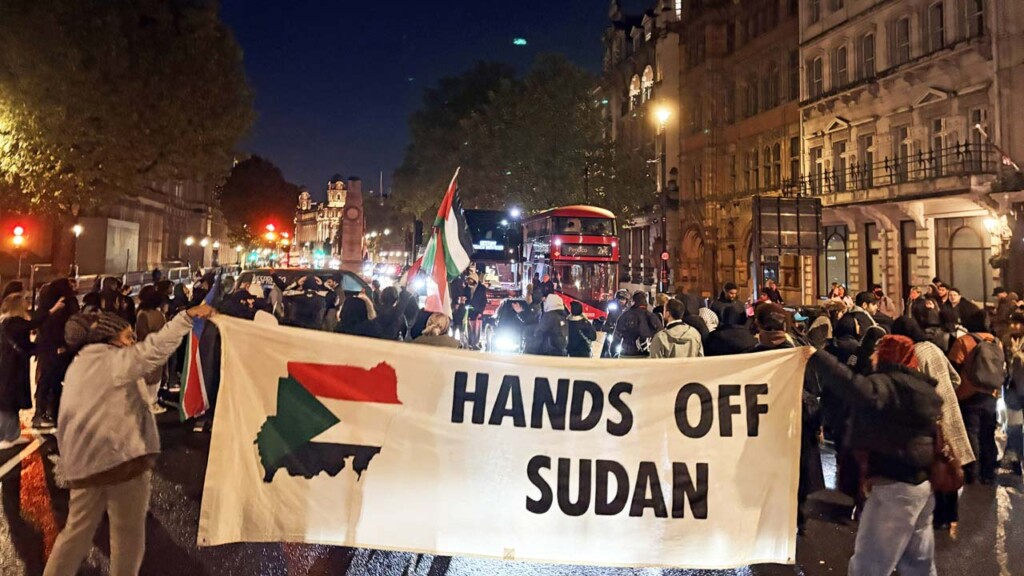
Proxy conflict arena
Regarding resources and their role in perpetuating the war, Hamad explains that there is clear competition among the warring parties for the country’s wealth, particularly gold and other minerals. She clarifies that the outbreak and continuation of the war are linked to the transformation of these resources into tools for financing the conflict. The warring factions compete to control mining areas and use the revenues from these resources to purchase weapons and fund military operations, thus making the economy part of the war machine.
Hamad emphasises that the intervention of regional and international factors in the conflict deepened the crisis in Sudan, adding in this regard: “A number of regional actors saw in the war an opportunity to expand their influence and protect their strategic interests in the region, so they provided political, logistical and military support to the parties to the conflict. As a result, Sudan turned into an arena of proxy conflict where regional and international interests intersect, especially since its strategic location overlooking the Red Sea made the conflict more complex and intertwined.”
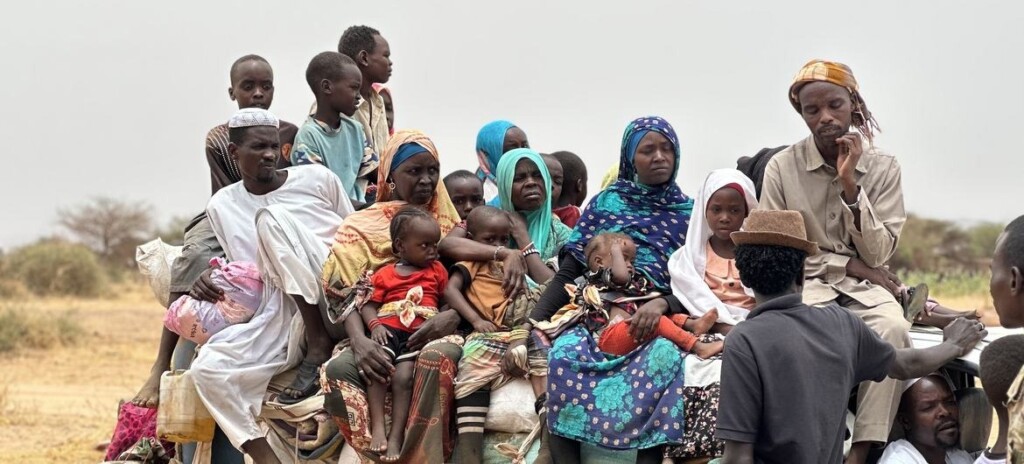
How realistic is a military solution?
In light of these complexities, Hamad discusses the feasibility of a military solution, pointing out that understanding the intertwined dimensions of this war (makes it clear that the solution cannot be military, because there are a number of root political, economic, and social reasons that led to its outbreak.) Hamad emphasises the need to address and understand these reasons (if we are seeking real solutions to stop the war.)
The humanitarian situation and violations against women
The report describes the humanitarian situation under the ongoing war as a complete collapse of both the security and humanitarian systems. Civilians, particularly women, children, and girls, are subjected to the most horrific violations, including mass killings, rape, and forced displacement, amidst a near-total absence of healthcare services. It notes that the United Nations has described the humanitarian situation in Sudan as the worst globally in terms of the number of displaced persons, the majority of whom are women and children.
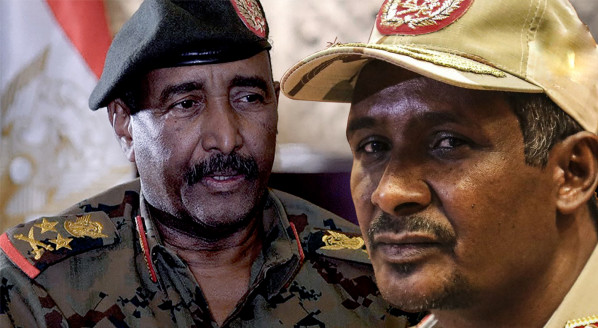
In an interview with Radio Dabanga, Hamad explains that this war is being waged on women’s bodies. Since its outbreak, the lives of millions have been drastically altered, and violations have reached catastrophic levels, manifested in waves of sexual violence, forced displacement, loss of breadwinners, and denial of healthcare and education. She adds that women in displacement camps are subjected to unprecedented levels of sexual violence and rape, with statistics indicating that approximately 12 million people in Sudan are at risk of gender-based violence.
Sexual violence cases increased by 288 per cent
She asserts that the destruction of hospitals and the disruption of reproductive and mental health services have led to serious consequences for the lives of women and mothers, forcing many of them to revert to traditional birthing methods due to the lack of modern healthcare services and the disruption of infrastructure.
She notes that a recent report by the Sudan Fact-Finding Mission showed a 288 per cent increase in cases of sexual violence between December 2023 and 2024, prior to the recent events in El Fasher and Bara, with subsequent figures likely to be much higher. She explains that documentation accounts for no more than 20 per cent of actual cases due to social stigma, fear, and insecurity.
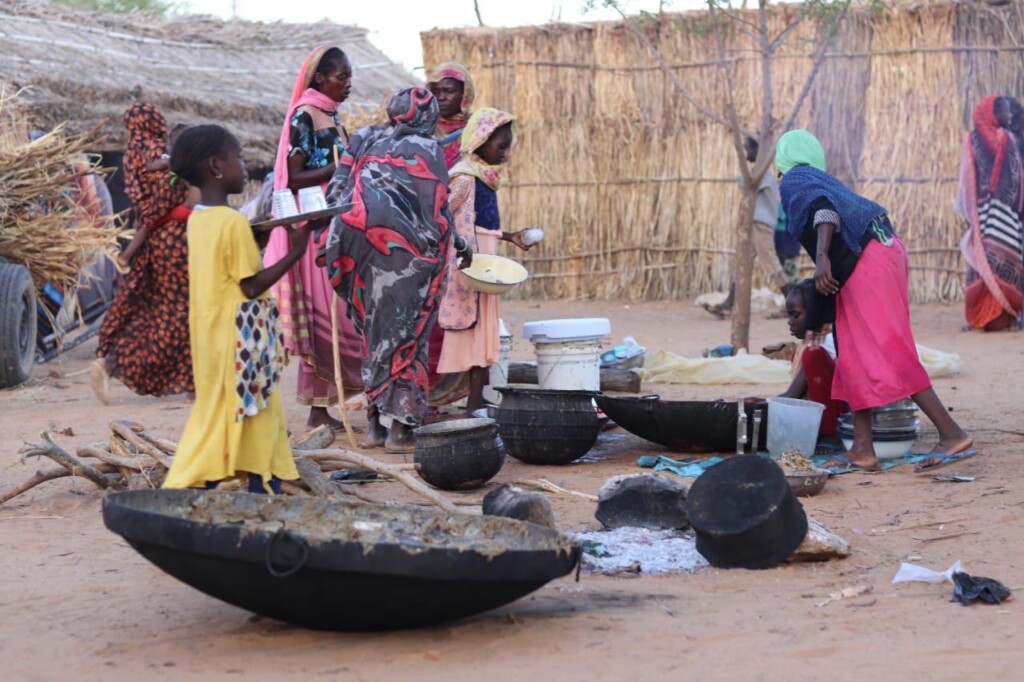
The role of women since the outbreak of war
Regarding women’s efforts since the first day of the war, Hamad highlights their participation in campaigns to stop the conflict, organise shelter for those affected, and provide food. In the interview with Radio Dabanga, she adds that most of the workers in the emergency committees, kitchens, and community initiatives are women, in addition to managing initiatives related to advocacy and documentation locally and internationally.
Formal representation of women in peace processes
In the interview, she raises an important point about the suffering of women from exclusion from political and peace processes in Sudan, despite the improvement in their participation in the Darfur peace process. In this regard, Hamad stresses the need for genuine representation of women in peace processes from the stage of designing the talks and designing the issues and topics to be discussed, to ensure that their issues are integrated in gender-sensitive language, and not just a formal representation of 25 per cent, but at least 40 per cent.
A photo posted by Massad Boulos, advisor to the US President on African and Middle Eastern affairs, on his official X platform account, showing him and representatives of the Quartet countries (Saudi Arabia, Egypt, and the UAE) in Washington – Saturday, October 25, 2025.
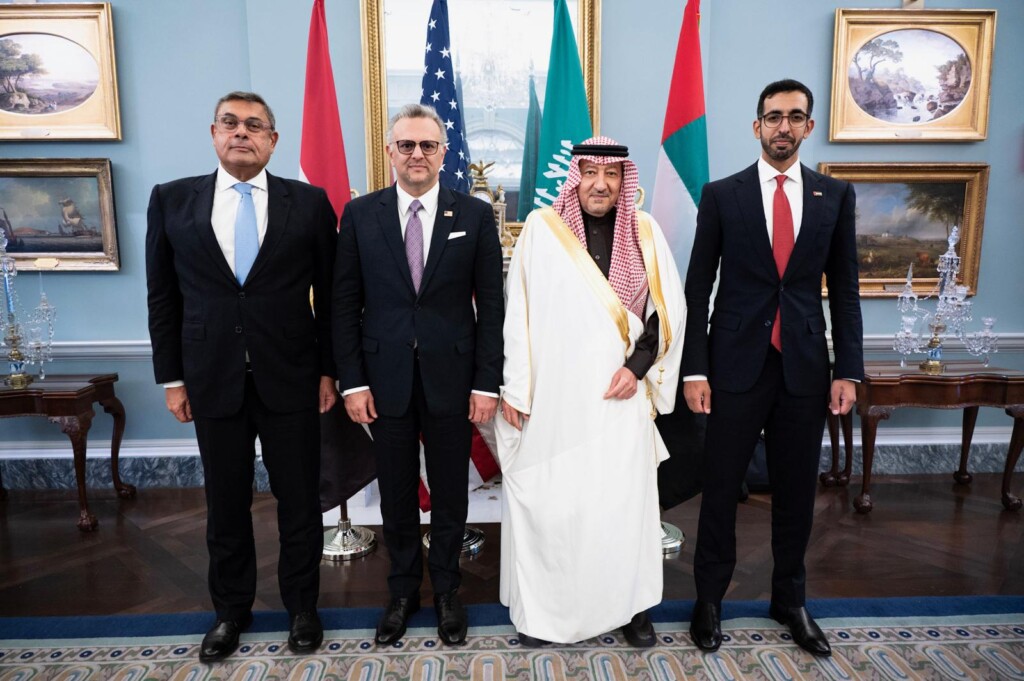
Assessment of the Quartet and the peace process
Regarding the Quartet’s initiative for peace in Sudan, led by the United States, Saudi Arabia, Egypt, and the United Arab Emirates, she believes that the Quartet’s initiative is facing challenges today. In this regard, she says, “There is clear intransigence from the army, and the absence of participation from civilians and women’s groups in the ceasefire.” She adds, “It is not possible to confirm whether the initiative will proceed on its path or not, but even if it does, women’s groups have their own vision of peace and their own narratives of peace and what it should be like.”
In an interview with Radio Dabanga, Hamad underscores that true peace “cannot be achieved without the genuine participation of women, including their issues from the outset, and their integration at all levels of negotiation and decision-making…because any peace that does not encompass the issues of all groups will be incomplete and fragile.” Hamad reiterates the necessity of “genuine women’s participation, starting from the design stage: designing the discussions, defining the issues, and designing the topics to be discussed in the files, and ensuring their presence from the beginning to guarantee that women’s issues are presented in gender-sensitive language.” She continued, saying, “They must have a voice that is heard, and their participation should be at least 40 per cent.”
In an interview with Radio Dabanga, Hamad points to the current reality surrounding the Quartet initiative and says that “the current reality in the Quartet is focused only on the two sides of the war, with a clear absence of the participation of civilians and women’s groups in the ceasefire.” In this regard, she says that women “need to equip themselves with clear plans on how to participate and own the political process, from humanitarian aid to political dialogue, to ensure effective participation in all stages of the process.”
Transitional justice that places women in decision-making positions and acknowledges their suffering
The researcher in peacebuilding and women’s inclusion emphasises the need to “give the Quartet, the women, space to have a clear vision as a feminist and civil society and not impose ready-made procedures or solutions on them.” She added, “Establishing a comprehensive political track that includes women and civil society as active parties in peacebuilding is essential, with the participation of all groups, youth, women, and civil society, to ensure that the process is inclusive and effective.”
Hamad explains that true peace “is not achieved through mere formal agreements but requires genuine transitional justice that places women in decision-making positions and acknowledges their suffering in order to address the root causes of the conflict.” She adds, “Before the war, there was some progress in women’s rights during the transitional period, but women suffered during dictatorships and resisted in their own ways.” She asserts that gender inequality in Sudan has historical roots and that women need to address it, as well as combat the prevailing patriarchal mindset.
Regarding what is required today, Hamad calls for the formation of a comprehensive feminist front that includes all feminist groups and initiatives that demand an end to the war and participation in building Sudan. She also calls for the necessity of integrating women at all levels of negotiation and decision-making, linking peace to transitional justice and gender justice, and ensuring women’s representation in any political process at a rate of no less than 40 per cent.
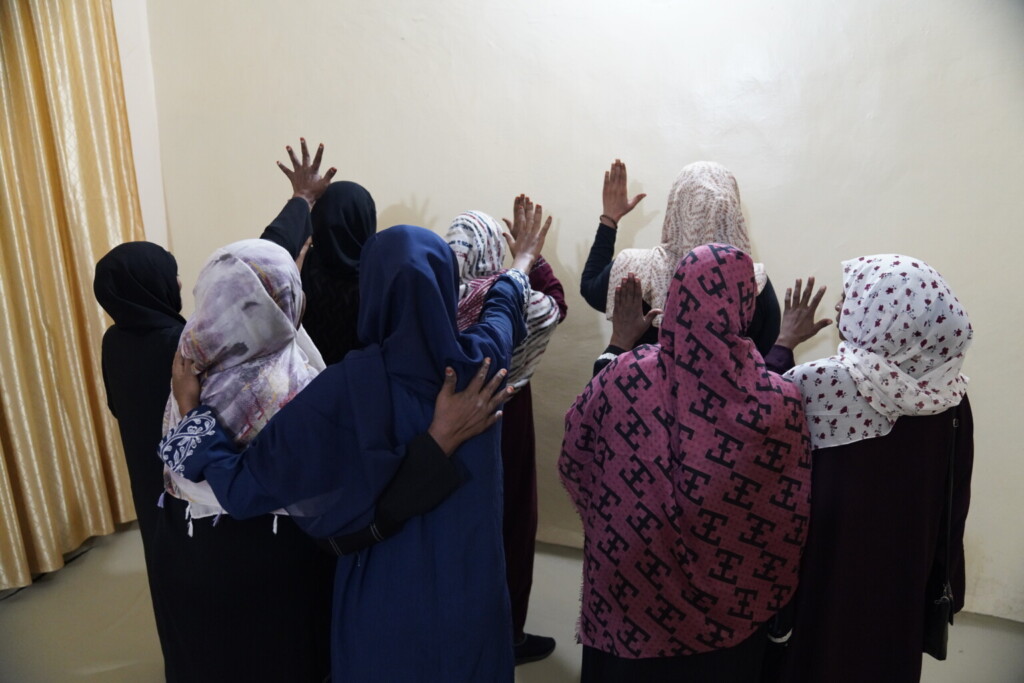
Suicides and a lack of psychological support
The gender expert warns that the normalisation of violence, rape, and systematic violence against women has become one of the most dangerous consequences of the war. She underscores that this repetition has led society to accept these conditions, resulting in a significant deterioration of women’s rights and issues. She adds, “There are girls who have committed suicide, and new suicides occur every day because they are unable to report them or access appropriate psychological support.” She points out that this is one of the most difficult and significant challenges facing feminist groups and women’s rights activists, as it is impossible to meet all the needs of affected women.
Painful and harsh challenges
Hamad believes that a young woman committing suicide because she lacked psychological support or healthcare, or because she suffered social stigma, is deeply saddening in this war. She points to another aspect of the problem: society itself has become primarily focused on survival, such as securing food for the family. She adds, “When a girl says she has been subjected to violence or rape, the family, struggling to put food on the table, may not pay attention to her case because their basic needs have taken precedence.”
Hamad explains that Sudanese society, and women in particular, are facing harsh challenges today, where the tragedies of gender-based violence have become intertwined with hunger and famine, resulting in reversed priorities. She considers this reality painful and shocking for women demanding their rights because it demonstrates the extent to which women’s suffering has become marginalised amidst the struggle for survival.
The impact of hate speech on women
Regarding hate speech, Hamad points out that it is one of the most dangerous social repercussions, as women have become targets of this discourse. She explains that, in addition to displacement, there have been cases of kidnapping. She added, “When these incidents appeared in the media, some justified them and believed that the girls ‘deserved’ what happened to them, which is extremely painful.” She says that “the media played a negative role in entrenching hate speech against female activists by portraying them as belonging to certain ethnicities or as collaborators with specific parties, which increased their exposure to violence and social stigma.” Hamad believes that hate speech “has left a profound impact on women, both in terms of targeting them physically and psychologically.” She added, “To avoid the effects of this discourse, it is essential to work on raising awareness and building local peace between groups, and to dedicate efforts to respecting human rights, without discrimination based on gender, tribe, or ethnicity.” She adds that confronting and rejecting hate speech is essential, as peace begins with the way we speak and our acceptance of others.
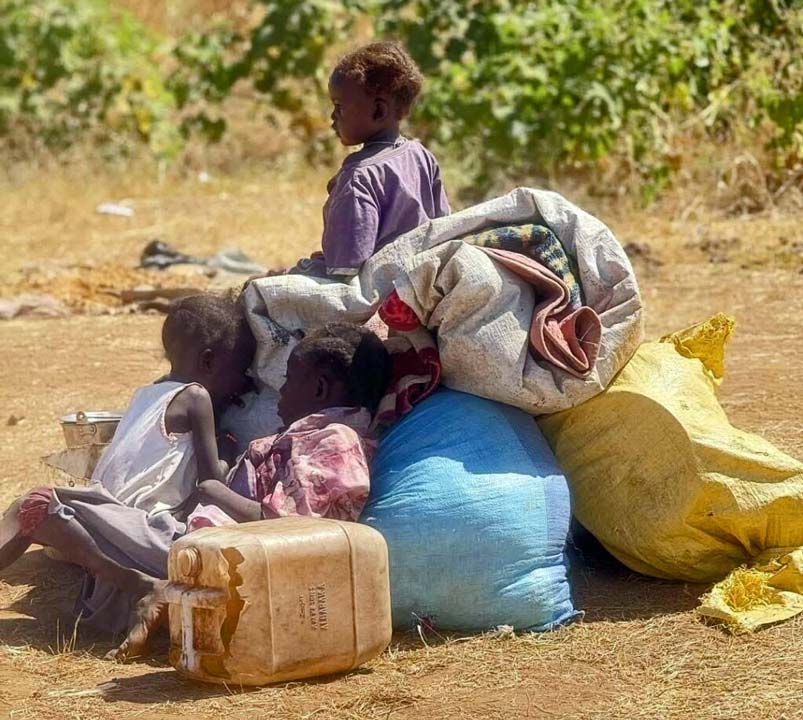
Women within political parties and forces
In assessing the role and status of women within political parties and forces in Sudan, Hamad explains that “the political forces themselves include women and women’s groups within the parties, but the problem is that women do not hold senior positions or decision-making roles within these parties.” She added, “If we look at the political forces, we will find that there is a female presence, but it is very limited at the highest levels.” In this regard, Hamad emphasises the necessity for “political parties to have fair representation for women in their structures, at a rate of no less than 40 per cent, and for women to be in leadership positions and decision-making centres, as well as being represented in political processes.”
Violations in El Fasher and Bara
Regarding the horrific violations that recently occurred in El Fasher and Bara, Hamad confirms in an interview with Radio Dabanga that a number of women’s platforms, including her own, “Sudanese Women for Peace,” issued statements condemning these violations against civilians and demanding accountability for those responsible. Hamad also called for the establishment of effective mechanisms to protect civilians, especially women, girls, and children, throughout Sudan, the opening of safe corridors for the delivery of humanitarian aid to those in need, and support for local groups working in affected areas such as Tawila and near Bara to provide health, psychological, shelter, and food assistance. She describes the violations in El Fasher as large-scale and serious and calls on the international community and organisations concerned with achieving justice to support efforts to protect civilians.
Peace cannot be achieved militarily
With the war continuing, Hamad told Radio Dabanga that “peace cannot be achieved through a military solution, and any attempt to impose a decisive outcome by force will only lead to more bloodshed, as has been seen over the past two years.” She calls for an immediate ceasefire and the opening of humanitarian corridors, stressing that true peace can only be achieved through a comprehensive dialogue that brings together all parties to address the fundamental issues.
Call to form a civil front
Hamad concludes her speech by emphasising that the final word lies in the necessity of forming a civil front that includes all initiatives and groups demanding an end to the war. She added, “We are losing our country day by day, and this requires all of us to act seriously and responsibly as a civil society, women, youth, and everyone who wants what is best for Sudan.” She stressed, “The time has come to work together to stop the escalation and preserve what remains of our homeland.”
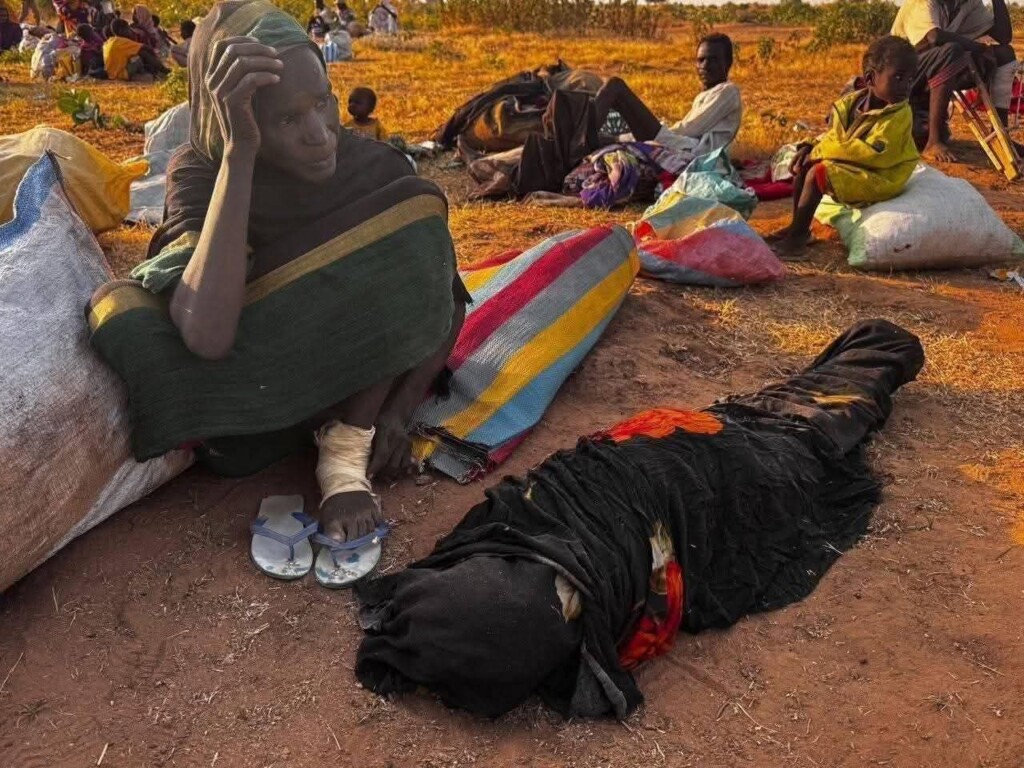









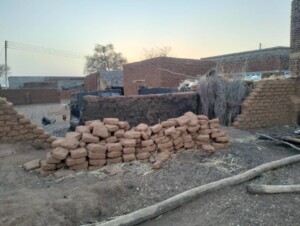

 and then
and then